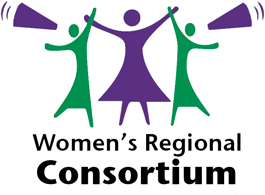Across Northern Ireland, 335,000 people are living in poverty. They are being failed by a system that should protect them. With no comprehensive Anti-Poverty Strategy, relentless benefit cuts, and ongoing benefit reprofiling—particularly affecting disability support—the most vulnerable are being left behind.
In the absence of sufficient government action, it has become the default role of the community and voluntary sector to hold the safety net together. Local organisations are now responsible for the emergency support systems keeping families afloat, including:
- Social Supermarkets
- Foodbanks
- Breakfast Clubs
- School Uniform Schemes
- Winter Clothing Programmes
These are not long-term solutions, but urgent, reactive efforts to stave off destitution.
Women, Poverty, and Debt: A Hidden Emergency
Women are disproportionately affected. Due to structural inequalities—such as lower lifetime earnings, part-time or precarious work, and caregiving responsibilities—women are more vulnerable to financial shocks. As a result, they are more likely to fall into problem debt and turn to illegal money lenders, including paramilitary-linked lenders and doorstep lending schemes.
This form of borrowing is highly prevalent yet largely hidden, shrouded in fear, shame, and silence. Community organisations are increasingly hearing from women who feel humiliated to admit their situation. These women are trapped—economically, emotionally, and socially—with no clear route out.
Poverty is a Mental Health Crisis
Women consistently report that the cost-of-living crisis is severely impacting their mental health. Many are:
- Anxious about rising bills
- Depressed by a lack of financial control
- Unable to sleep due to constant worry
- Overwhelmed by the inability to provide basic necessities for their children
We know that poverty and poor mental health are deeply interconnected. It is not possible to support “well-being” when people don’t have access to heat, food, or electricity. The popular rhetoric around “self-care” and “resilience” rings hollow when the basic conditions for survival aren’t being met.
There are seven pillars of self-care, but in persistent poverty, these are simply out of reach. Access to rest, healthy food, exercise, emotional well-being, financial stability, and social connection—all foundational to good health—are luxuries to those in crisis.
A Call for Urgent Action
The community sector cannot carry this burden alone. We need:
- A fully resourced, long-term Anti-Poverty Strategy for Northern Ireland
- Protection and reform of the benefits system, especially for disabled people
- Funding for grassroots organisations that are bridging the gap left by state services
- Targeted support for women, including access to safe credit, debt advice, and trauma-informed mental health services
- Recognition of the gendered nature of poverty in all policy responses

